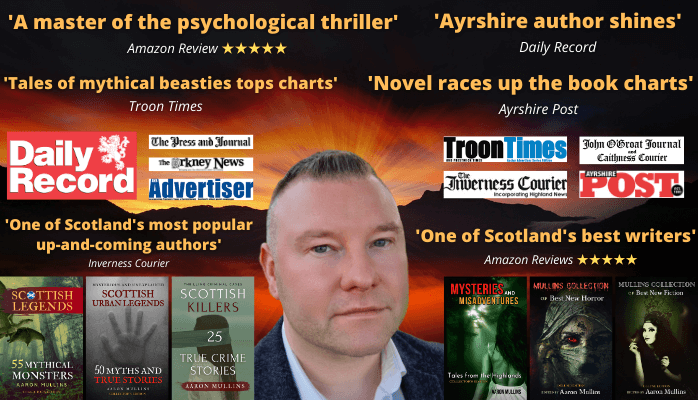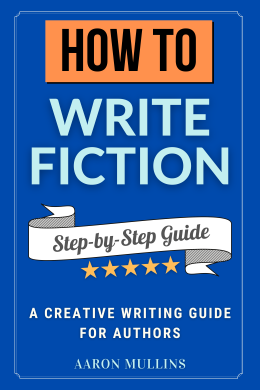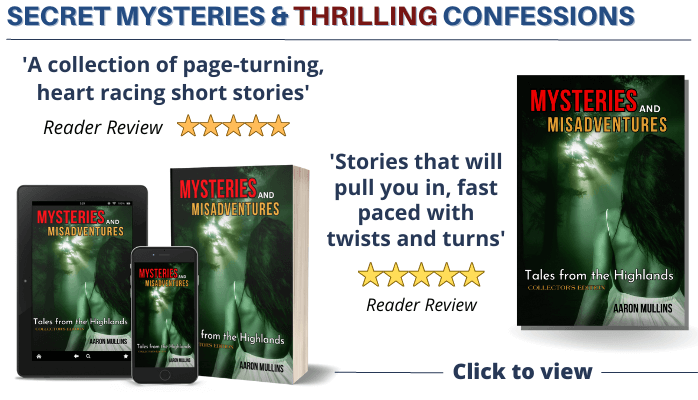Aaron Mullins
BESTSELLING BOOKS – AUTHOR RESOURCES
Top 10 Writing Tips
As an aspiring writer searching for the best writing tips for authors, you likely know the importance of finding new ways to improve your writing. One effective way to do this is by seeking out writing tips from experienced authors and editors. By incorporating new creative writing techniques and strategies into your writing routine, you can boost your productivity, elevate your skills and create more polished books, poems and short stories.
There are many different genres and writing styles and everybody has a unique author voice, which makes some writing tips more appropriate than others. But when doing creative writing for fiction books, there are a number of universal rules that can help guide you through your story writing process.

Whether you’re an aspiring author, a student working on a college paper, a blogger crafting compelling content, a professional copywriter or an academic drafting documents for work, there are always opportunities to learn new writing strategies and productivity tips to improve your writing. Many of the top tips for novelists and best practices for writers can help hone your skills and communicate your story more effectively.
These top 10 writing tips and tricks can improve the structure and readability of your work, helping you to stand out when trying to win writing competitions and get your book published. While there’s lots of writing advice available from many sources, these are the top 10 creative writing tips that have helped me the most to improve my writing skills.
We all know that to become a great writer take a lot of practice. But if we can improve the quality of that practice time, then we establish better writing habits earlier. We make our writing more effective and increase our chances of getting published.
Top 10 Writing Tips
1) Writing Plan, Purpose and Style
The number one best writing tip for authors to improve your writing is to plan your work. This involves writing out your ideas, deciding where your story is going, the twists and turns and how it will end.
When will you introduce each character? Generally, there should be a clear goal that your main protagonist consistently work towards throughout your story, overcoming ever increasing jeopardy or obstacles to do so. All while trying to keep the focus on one to three protagonists.
You can find many examples and writing tips on how to plot your book. My writing strategy is to put a full plan together using a template which describes all characters, locations and story arc. Then I write a full first draft of my novel or short stories, before going back and editing my entire book at the end. I find this writing style easier to include key plot points, character development, revealing clues and building towards a known ending.
When looking at best practices for authors, there are many personal choices to be made when writing a book, but the key things I include in my own plans are:
- Don’t have too many characters: 1-3 perspectives is enough
- Have one clear overall goal that your main character works towards
- Put the main challenge in early, resolve it at the very end
- Ensure there are almost impossible to overcome obstacles
- Write in either first person (I, we) or third person (she, name)
- If writing in first person, develop a unique character voice
- If you write something that doesn’t advance the plot, delete it
Will your main character be asked to take on a challenge? Or will one arise from their surroundings and interactions with other characters? How many times will they seemingly fail before finally achieving their goal?
We’ll touch on some of these writing techniques for authors further in this list and see how you can implement them into your own writing strategies to improve your writing skills.
2) Writing Tip: Show, Don’t Tell
Possibly the most common piece of writing advice for new authors. Rather than simply stating that your character felt something, show it instead.
Don’t tell me the moon is shining; show me the glint of light on broken glass.
Anton Chekov
As one of the best writing tips for authors, it’s important to not say your character was sad or angry, but instead show them being sad or angry. A great tip for novelists to achieve this is through dialogue, their habits, and their body language.
The ‘show, don’t tells principle means that instead of simply telling your readers what is happening, you should aim to create vivid and immersive scenes that allow your readers to experience the story firsthand.
Writing Tips: Why ‘show, don’t tell’ is so important:
- It engages the reader’s imagination: When you show rather than tell, you’re essentially inviting the reader to imagine the scene in their mind’s eye. By creating a sensory-rich experience, you allow the reader to fully immerse themselves in the story and engage with the characters on a deeper level.
- It creates a more memorable experience: Readers are more likely to remember scenes that are vividly described and engaging. By showing rather than telling, you give your readers a memorable experience that will stick with them long after they’ve finished reading.
- It builds tension and suspense: When you show rather than tell, you can build tension and suspense by hinting at things rather than outright stating them. This creates a sense of anticipation in the reader and keeps them engaged as they wait to see what happens next.
- It makes the story more dynamic: By showing rather than telling, you can create a more dynamic story with interesting characters and exciting plot developments. This keeps the reader invested in the story and eager to see where it goes next.
Showing rather than telling can improve writing and is an essential writing technique for authors looking to create a vivid, engaging, and memorable story. By putting in the effort to create immersive scenes and build tension and suspense, you’ll be able to create a story that truly resonates with your readers.
3) Best Practices: Writing Character Perspectives
This is a short and simple writing tip for authors. Don’t switch points of view within a chapter as this will usually confuse the reader. If you need to show another character’s feeling or reactions then do this through dialogue or observation. For example, one writing technique that novelists can use is to describe how another character’s face is reacting to the story events. This writing strategy allows the point of view to remain on one character and is an essential writing skill.
4) Improve Writing: Create a Story World for Readers
It’s best practice for authors to do this early in their story. Describe what your character looks like. Describe their environment, the world around them, the other characters they meet. Any author’s guide to writing will tell you how important it is to put a picture in the mind of the reader. I like to do this as close to the start of a new story as possible, or early on in a new chapter if introducing a new character.
In another of my author writing advice guides, you can find more detailed information on how to describe people in your stories.
5) Writing Tip: Write for All the Senses
Another common writing tip and general piece of creative writing advice for authors is to make sure you aren’t just writing for the eyes. To really immerse your readers in your story, it’s best practice for authors to describe how things smell and taste, what they feel like and how they sound.
Writing for all the senses is a powerful way to engage your readers and immerse them in your story. By engaging your readers’ senses of sight, sound, taste, touch, and smell, you can create a rich, multi-dimensional experience that allows your readers to fully experience your story.
Writing Tips: How to write for all the senses:
- Sight: Use vivid and descriptive language to paint a picture in your reader’s mind. Describe the colors, shapes, and textures of your setting and characters.
- Sound: Incorporate sound effects and onomatopoeia to make your writing more immersive. Describe the sounds your characters hear, such as the chirping of birds or the sound of footsteps on a gravel path.
- Taste: Use descriptive language to describe the flavors of food or drink in your story. Use sensory language to describe the textures and flavors of the food, such as the crunch of a crisp apple or the sweetness of a ripe strawberry.
- Touch: Use tactile language to describe the physical sensations in your story, such as the feel of a cool breeze on the skin, the texture of a rough surface, or the sensation of a warm embrace.
- Smell: Use descriptive language to describe the scents in your story, such as the aroma of freshly baked bread or the scent of blooming flowers.
Writing for all the senses is an important piece of author writing advice because it helps to create a more immersive reading experience for your audience. When you engage multiple senses, you create a richer and more detailed experience for your readers, which can help them to better understand and relate to your story. By creating a sensory experience, you can also help your readers to remember your story more vividly, making it more impactful – a winning strategy for authors looking to improve their writing skills.
Bonus Writing Tip: Another important writing tip related to the senses and emotions is to pay attention to your tone and voice. Depending on the context of your writing, you may need to adjust your tone to fit the audience or purpose of the piece. This tip for writers is particularly true for non-fiction writing, where a blog post may require a more conversational tone than a formal report for work.
6) Improve Your Writing: Don’t Use Clichés in Your Story
A great tip for aspiring writers is to not use clichés, which are overused phrases or expressions that have lost their originality and impact. They can make your writing feel stale and unoriginal, and may even distract your readers from your story. Agents, publishers and readers don’t want to hear the same old stale descriptions and associations that have been used a million times before. No matter how great an idea, plot or description is – if you have simply replicated it without adding your own unique stamp then your book will be unsaleable. Too familiar.
So a top writing tip is to come up with some fresh ideas. Another writing strategy for authors is to play with common expectations by seemingly following a formula, but suddenly introducing something completely unexpected. A character or plot twist that nobody could predict. This is what makes your story stand out and creates memorable stories and characters.
Writing Tips: Why you should avoid clichés:
- They’re predictable: Clichés are predictable and can make your writing feel formulaic. They don’t add anything new to your story and can make it feel uninteresting and uninspired.
- They’re unoriginal: Clichés are often used by other writers, which means they don’t help you stand out as a unique and original voice. If you want to make an impact with your writing, you need to find your own voice and style.
- They’re lazy: Using clichés can be a sign of laziness in your writing. It’s easy to rely on these phrases instead of taking the time to find more creative ways to express your ideas.
Writing Tips: How to avoid clichés in your writing?
- Use fresh language: Instead of relying on tired expressions, try to find new and interesting ways to describe things. Think about how you can use language to paint a vivid picture in your reader’s mind.
- Be specific: Clichés are often generalizations. To avoid them, try to be as specific as possible in your descriptions. Use concrete details that will help your reader visualize what you’re describing.
- Focus on your unique perspective: The best way to avoid clichés is to focus on your own unique perspective. Write from your own experiences and observations, and don’t be afraid to take risks and try new things.
Remember, improving your writing is all about finding your own voice and expressing yourself in a way that feels authentic and original. By avoiding clichés, you can create writing that is fresh, engaging, and truly your own.
7) Writing Tip: Remove Passive Voice From Your Writing
As an author, a great writing technique to practice and one of the most important skills you can develop is the ability to write in an active voice. Writing in a passive voice can make your writing sound distant and disconnected from the reader. In contrast, active voice engages the reader and makes your writing more compelling.
Writing Tips: How to identify and eliminate passive voice in your writing:
- Look for sentences where the subject is acted upon rather than performing the action. For example, “The cup was thrown by the girl” is passive voice, while “The girl threw the cup” is active voice.
- Pay attention to the use of helping verbs such as “is,” “was,” “has been,” and “will be.” These can signal passive voice. Instead, try to use strong verbs that convey the action clearly and directly.
- Make sure you are using active voice in dialogue. Characters should speak in a natural, direct way that reflects their personality and tone.
- Use active voice to create a sense of urgency and immediacy. Passive voice can create a sense of detachment, while active voice engages the reader and creates a more vivid experience.
Overall, removing passive voice from your writing is a great tip for novelists and an important step toward creating a more engaging and effective piece of work. By using strong verbs, clear subjects, and active phrasing, you can improve your writing to make it more compelling and memorable. Writing in a passive voice was a bad habit of mine, but one I have got better at avoiding through many hours of practicing my writing techniques and strategies. You want to be writing about what is happening now, in real time.
8) Writing Skills: Word Controls to Improve Your Writing
As part of my author’s guide to writing, there are a number of control measures, or writing rules if you will, that I employ to try and keep my storytelling as professional and readable as possible. The easier it is to read then the easier it is for the reader to immerse themselves in your writing, and the more they will enjoy your book.
- Use adverbs carefully (see what I did there) – some well-known authors (I’m looking at you Stephen King) hate using adverbs (words ending in -ly). However, I would advocate that if used sparingly they can add emphasis to actions. But try not to over-use them. Instead, try to describe actions or preceding events in such as way that you no longer require the use of adverbs, as the story tells itself. For example, angry dialogue preceding a character leaving a room. You don’t need to state that the door was slammed violently, as we can already tell how it was done. For the same reasons, do you really need to use exclamation marks?
- Passive verbs: Some verbs lend themselves to the bad habit of writing in a passive voice, these are usually ‘was, were, been, being, to be, is, am, are’. Consider changing these to more immediate word choices to keep your reader engrossed in your story. For example, swap ‘she was running’ for ‘she ran’.
- Be explicit in your writing. Don’t use vague words, such as ‘very’ or ‘thing’. For example, instead of saying something was ‘very big’ say it was ‘huge’ or ‘larger than a lion’s yawn’ – you get the idea. Along the same lines, replace the word ‘some’ and all words that start with ‘some-‘ with more specific descriptions.
- Don’t start sentences with leading words, unless it is part of your character’s unique voice. Instead, just jump directly into what you want to say. Again, these are vague words, such as ‘often’.
Relating to word control, another top writing tip is to consider the importance of clarity in your writing. It’s crucial to convey your message in a way that is easy for your reader to understand, so focus on using simple and direct language when appropriate. You can improve your writing by avoiding jargon and overly complex sentence structures, and trying to be as concise as possible while still conveying all the necessary information, emotion and storyline.
9) Writing Strategies: Trust the Reader to Understand Your Story
A creative writing tip for aspiring authors is that you don’t need to describe the same thing in two different ways to get your point across. For example, ‘It was heavy. She couldn’t lift it off the floor.’ The same thing said twice. To improve your writing skills, state it once in an interesting way, possibly using a simile.
On the same note, I personally try not to use double adjectives very often. And I never use three adjectives. I like to pick out the key feature of an object, person or location and use that as the main descriptor. Then as part of my writing strategy, I add greater detail by using the other senses to set the scene.
When your story is ready for rewrite, cut it to the bone. Get rid of every ounce of excess fat. This is going to hurt; revising a story down to the bare essentials is always a little like murdering children, but it must be done.
Stephen King
Bonus Writing Tip: You can make your story unique and interesting by choosing nouns that are used less frequently, or adding items into a room that aren’t usually described or perhaps even expected to be there. Chairs, tables and doors are boring. But pinball machines, wolf-pelt rugs and neon jukeboxes are interesting.
10) Writing Tip: Edit Your Story Then Publish Your Book
It’s tempting to finish writing your story, celebrate the victory and call it done. I mean, who wants to trawl back through the entire thing, scouring every chapter, sentence and word for weaknesses. Spending hours deliberating over the perfect way to say even the smallest thing. Yet, as a professional author looking to improve your writing, this is what you must do.
A great writing tip is don’t forget the power of revision and editing. After completing a draft, take a break and come back to it with fresh eyes. Read through your writing carefully and make edits for grammar, spelling, and punctuation errors. Consider also the structure of your writing and whether it flows logically and effectively.
Despite this wealth of writing tips for authors, I fully admit that writing a book is difficult. Nobody gets it right on the first draft (or second, or third, or fourth…). Revise your first draft. Have another pair of eyes look it over. Perhaps even employ professional editorial services for expert feedback and constructive advice.
I hope you’ve found these writing tips useful, whatever your style. Let me know how you get on implementing these writing techniques and strategies, and how they have improved your writing skills.
Stay creative,
Aaron Mullins
Find more writing tips, guidance and support to become the best writer you can be in my book How to Write Fiction: A Creative Writing Guide for Authors:

Best practices for authors: Featuring detailed insights into how to use the secret art of euphonics to unleash the power of psychology in your work. Designed to guide you through your complete story journey and achieve success with your writing!
These are just a few of the many writing tips that can help you improve your written communication and author skills. By incorporating these techniques and seeking out additional advice and feedback from other writers, you can continue to grow and develop as a skilled and effective writer.
Pop in your email and click ‘Subscribe’ to get free stories, writing tips and author advice:
Aaron Mullins (@DrAaronMullins) is an award winning, internationally published psychologist and bestselling author. Aaron has over 15 years experience in the publishing industry, with expertise in business strategy for authors and publishers. He started Birdtree Books Publishing where he worked as Editor-in-Chief, partnered with World Reader Charity and taught Academic Writing at Coventry University. Aaron’s book How to Write Fiction: A Creative Writing Guide for Authors has become a staple reference book for writers and those interested in a publishing career. Find out more.



